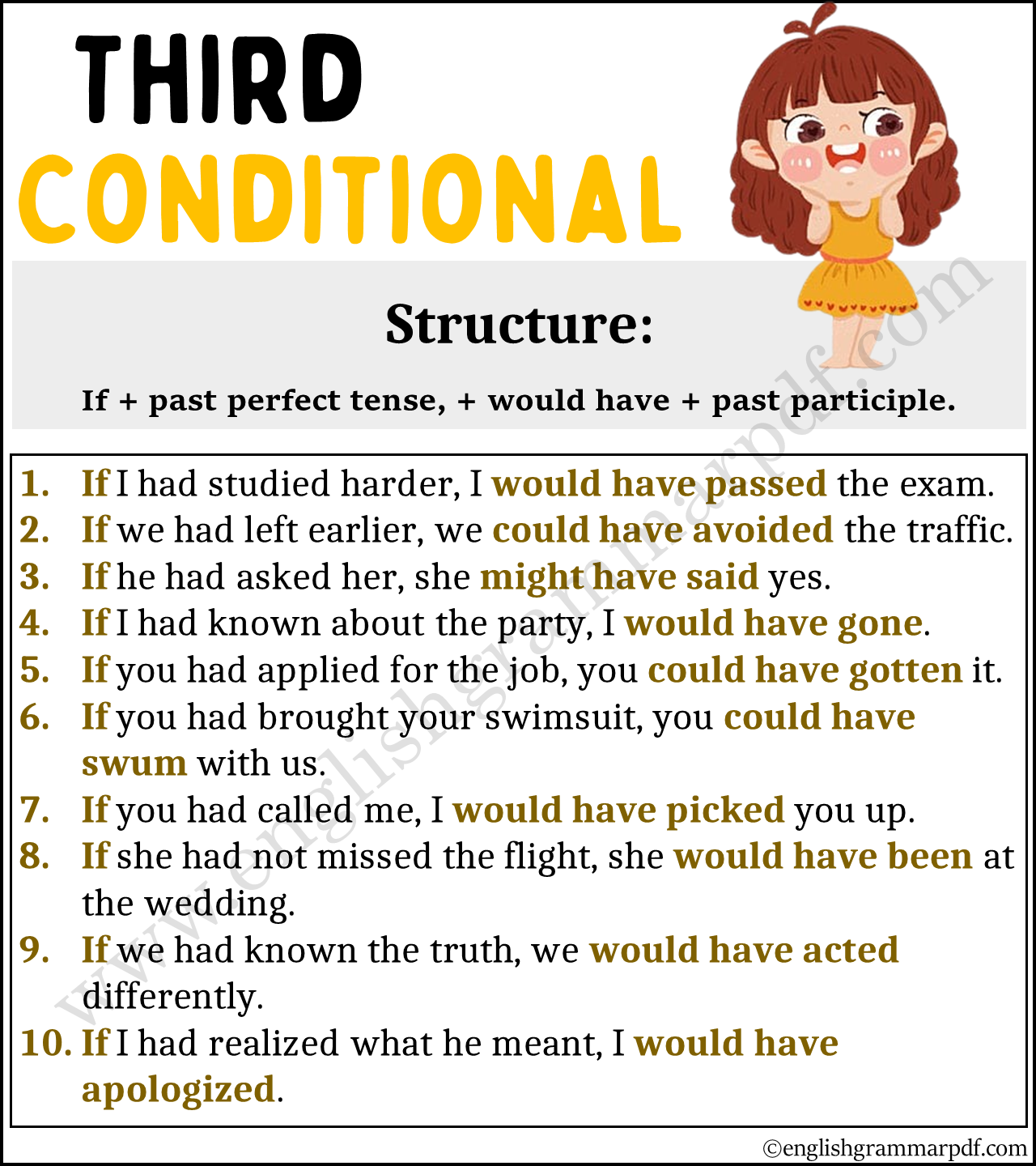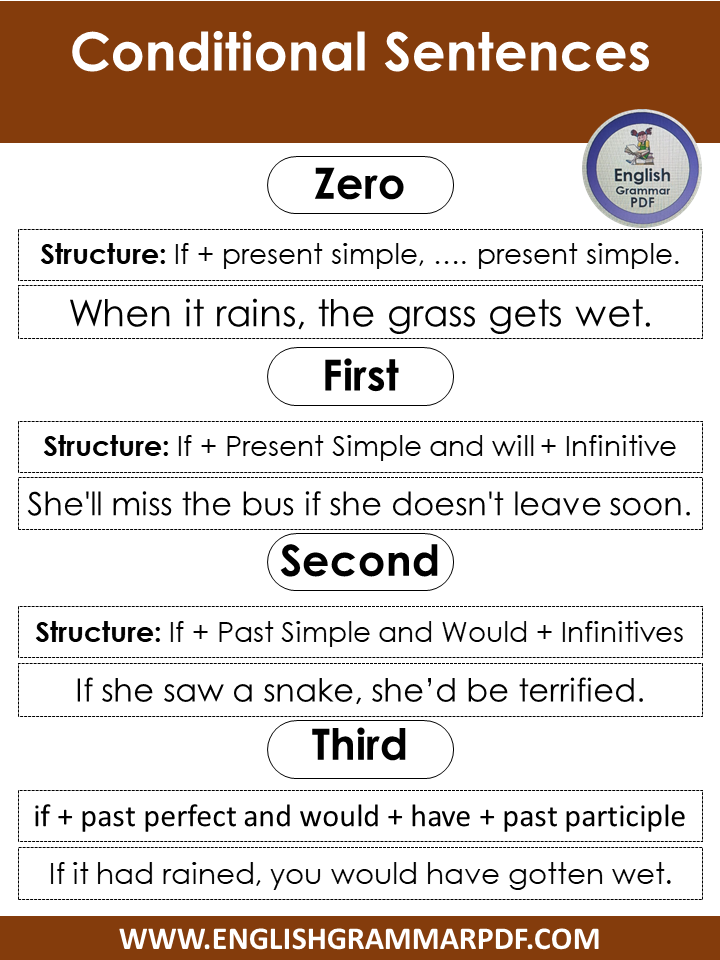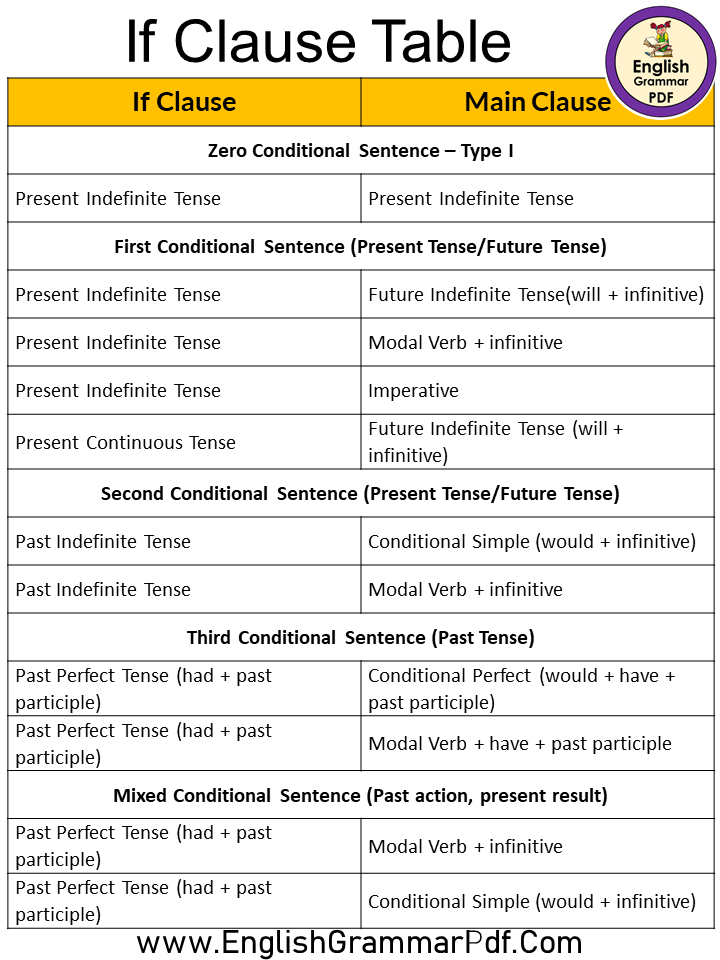Third conditional sentences are used to discuss hypothetical situations in the past and their possible outcomes, which did not actually happen. These sentences are useful for expressing regret, reflecting on different outcomes, or simply imagining different historical scenarios.
Structure
The structure of a third conditional sentence typically follows:
- If + past perfect tense, + would have + past participle.
This structure can also be reversed, placing the result before the condition, and it still retains the same meaning.
Rules
- Use the past perfect tense for the condition: This indicates that the action or situation is completed in the past.
- Use ‘would have’ followed by the past participle for the result: This construction shows that the outcome is purely hypothetical and did not occur.
- Modal verbs like could have or might have can replace ‘would have’: These variations introduce different degrees of speculation or possibility into the hypothetical outcome.
- It is strictly hypothetical: Always pertains to situations that cannot be changed because they are in the past.
Third Conditionals Example Sentences
- If I had studied harder, I would have passed the exam.
- If you had warned me, I would have taken a different route.
- If we had left earlier, we could have avoided the traffic.
- If he had asked her, she might have said yes.
- If they had invested wisely, they would have made a fortune.
- If I had known about the party, I would have gone.
- If you had applied for the job, you could have gotten it.
- If she had seen the sign, she would not have parked there.
- If we had caught the earlier train, we would have arrived on time.
- If he had brought his camera, he could have taken some great photos.
- If they had realized the danger, they would have left sooner.
- If I had understood the instructions, I would have helped you.
- If you had brought your swimsuit, you could have swum with us.
- If she had attended the meeting, she would have learned about the changes.
- If we had seen the forecast, we would have postponed the picnic.
- If he had saved his document, he would not have lost his work.
- If you had called me, I would have picked you up.
- If she had not missed the flight, she would have been at the wedding.
- If we had known the truth, we would have acted differently.
- If I had realized what he meant, I would have apologized.
These sentences demonstrate how the third conditional is used to reflect on past events with a perspective of what could have been, allowing for reflection and sometimes a poignant sense of what was missed or what could have been achieved.
Related:



